
Essaouira: The Enchanting Wind City of Morocco
Located on the Atlantic coast of Morocco, Essaouira is a captivating blend of history, culture, and natural beauty. Known for its strong winds, the city has earned the nickname 'Wind City of Africa,' making it a haven for windsurfing and kitesurfing enthusiasts. Its well-preserved medina, a UNESCO World Heritage site, is a labyrinth of narrow streets, bustling souks, and historic buildings that offer a glimpse into the city’s rich past. Essaouira’s ramparts, which date back to the 18th century, provide stunning views of the ocean and the city's iconic blue-and-white architecture. The harbor is a vibrant scene of fishing boats and fish markets, where you can savor the freshest seafood. The city’s relaxed atmosphere and artistic vibe attract musicians, artists, and travelers from around the world, creating a unique and welcoming environment. Beyond the medina, Essaouira offers pristine beaches, where you can unwind or take part in water sports. The city is also famous for its annual Gnaoua World Music Festival, which draws international artists and visitors. Whether you are wandering through the medina, enjoying the coastal breeze, or exploring the local art scene, Essaouira promises a memorable and enriching experience.
Local tips in Essaouira
- Visit the medina early in the morning to avoid crowds and fully appreciate its charm.
- Try fresh seafood at the local fish markets; it's a must for seafood lovers.
- Bring a windbreaker; the coastal winds can be quite strong, even in summer.
- Take a walk along the city ramparts for breathtaking ocean views.
- If visiting in June, don't miss the Gnaoua World Music Festival.
Essaouira: The Enchanting Wind City of Morocco
Located on the Atlantic coast of Morocco, Essaouira is a captivating blend of history, culture, and natural beauty. Known for its strong winds, the city has earned the nickname 'Wind City of Africa,' making it a haven for windsurfing and kitesurfing enthusiasts. Its well-preserved medina, a UNESCO World Heritage site, is a labyrinth of narrow streets, bustling souks, and historic buildings that offer a glimpse into the city’s rich past. Essaouira’s ramparts, which date back to the 18th century, provide stunning views of the ocean and the city's iconic blue-and-white architecture. The harbor is a vibrant scene of fishing boats and fish markets, where you can savor the freshest seafood. The city’s relaxed atmosphere and artistic vibe attract musicians, artists, and travelers from around the world, creating a unique and welcoming environment. Beyond the medina, Essaouira offers pristine beaches, where you can unwind or take part in water sports. The city is also famous for its annual Gnaoua World Music Festival, which draws international artists and visitors. Whether you are wandering through the medina, enjoying the coastal breeze, or exploring the local art scene, Essaouira promises a memorable and enriching experience.
When is the best time to go to Essaouira?
Iconic landmarks you can’t miss
Port de Essaouira
Explore the vibrant Port de Essaouira, a historical maritime haven in Morocco that offers fresh seafood, stunning views, and a rich cultural atmosphere.
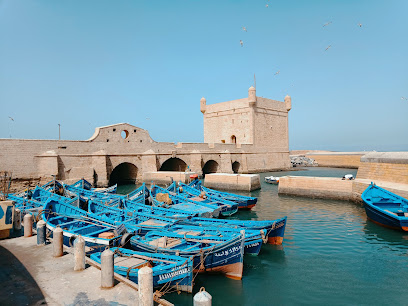
City Walls
Explore the historic City Walls of Essaouira, a UNESCO World Heritage site, where history meets breathtaking coastal views.
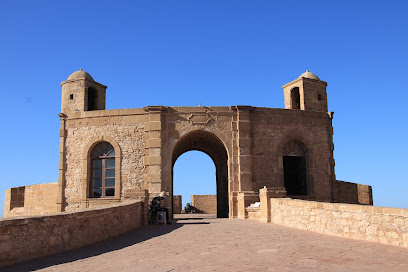
Plage d'Essaouira
Experience the idyllic beauty of Plage d'Essaouira, a premier beach destination in Morocco offering adventure and relaxation amidst stunning coastal views.
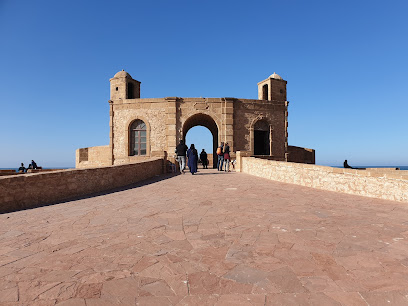
La Coupole Essaouira Beach
Experience the vibrant culinary scene at La Coupole Essaouira Beach, where delicious tapas meet breathtaking ocean views in a captivating atmosphere.
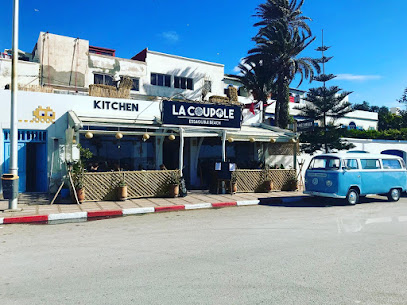
Bab Sbaa
Explore the historical marvel of Bab Sbaa in Essaouira, where stunning architecture meets the rich cultural heritage of Morocco.
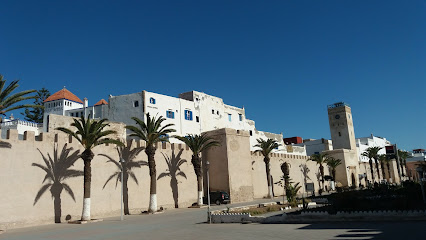
Sqala du Port d'Essaouira
Explore the historic Sqala du Port d'Essaouira, a stunning landmark that blends maritime heritage with breathtaking ocean views.
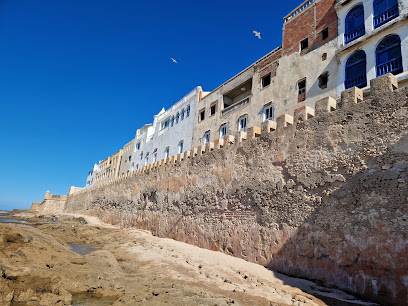
Place du Marché aux Grains
Discover the vibrant heart of Essaouira at Place du Marché aux Grains, a historical landmark filled with culture, crafts, and local flavors.
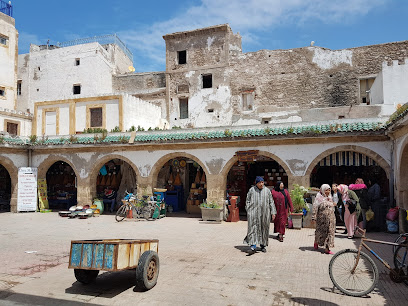
Be In Naturetours Essaouira
Discover the breathtaking landscapes of Essaouira with Be In Naturetours, offering thrilling hiking adventures and enlightening sightseeing tours.
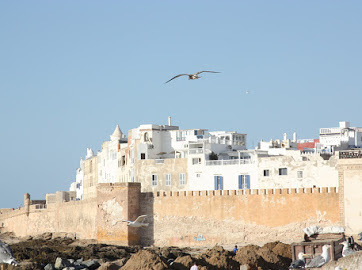
Essaouira Wind Palace
Discover the charm of Essaouira at Wind Palace, where Moroccan hospitality meets culinary delights in a historic coastal city.

Essaouira, Maroc
Discover the cultural richness and stunning coastal views of Essaouira, a UNESCO World Heritage site that enchants every traveler with its vibrant atmosphere.
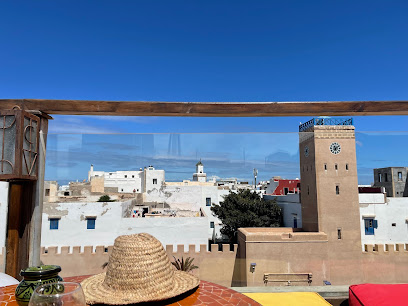
Dar Souiri
Explore the cultural richness of Essaouira at Dar Souiri, a vibrant center for art, history, and community events in the heart of the Medina.
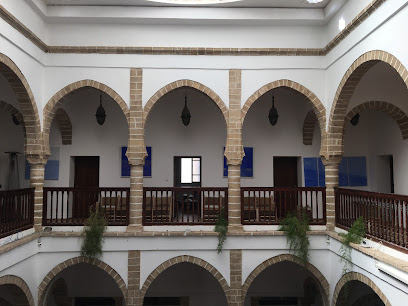
Borj El Baroud
Discover the rich history and stunning coastal views at Borj El Baroud, a must-visit historical landmark in Diabat, Morocco.
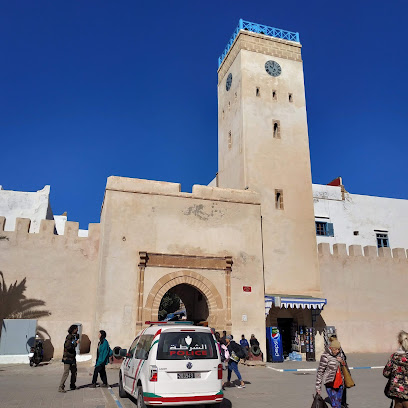
Gallery Kasbah
Discover the vibrant art scene of Essaouira at Gallery Kasbah, where local craftsmanship meets contemporary creativity in a historic setting.
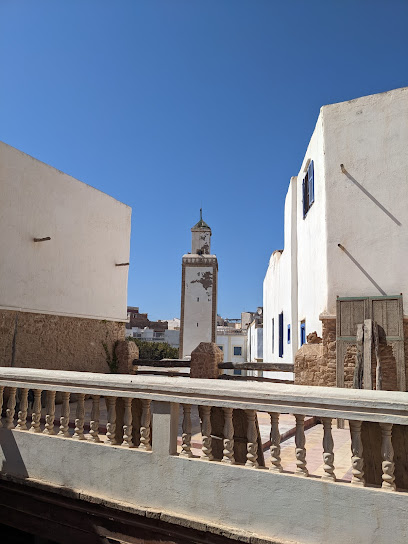
Dar Sultan Palace
Explore the historic Dar Sultan Palace in Diabat, Morocco - a royal landmark offering stunning architecture and breathtaking views of the coast.
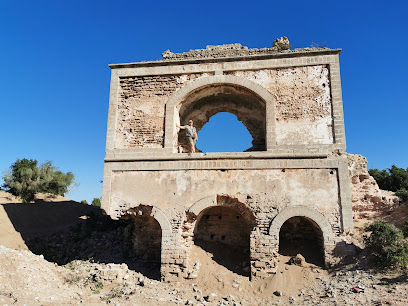
la berbère ink studio
Explore La Berbère Ink Studio in Essaouira for exquisite tattoos that reflect the city's vibrant culture and artistry, creating lasting memories of your journey.
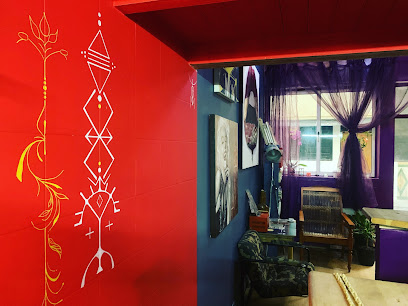
Unmissable attractions to see
Port de Essaouira
Explore the vibrant Port of Essaouira, where rich history meets stunning coastal views and local flavors await every traveler.
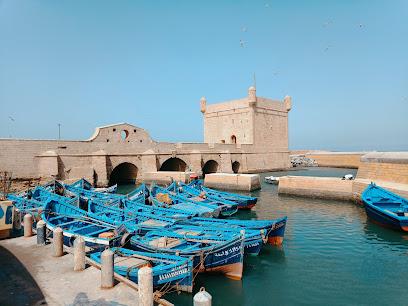
Plage d'Essaouira
Experience the captivating beauty of Essaouira's Plage d'Essaouira, where sandy shores meet rich Moroccan culture and vibrant local life.
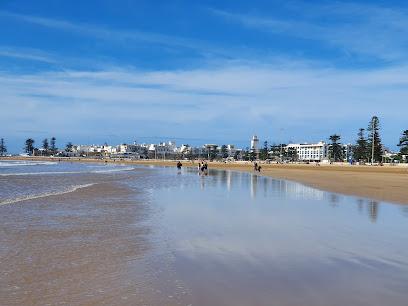
Port of Essaouira Sqala
Experience the rich history and stunning coastal beauty of Essaouira, Morocco's enchanting port city filled with art, culture, and culinary delights.
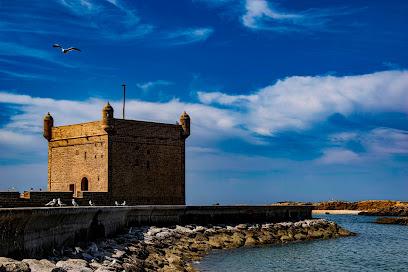
Fish Market
Explore the vibrant Fish Market in Essaouira, a culinary paradise where the freshest seafood meets rich Moroccan culture and tradition.
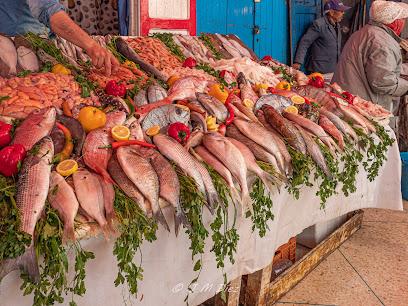
Palma Quad
Experience the thrill of quad biking through the stunning landscapes of Essaouira with Palma Quad, where adventure meets breathtaking beauty.
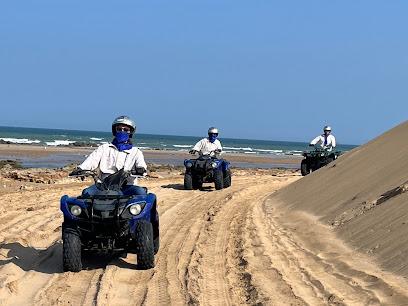
Place du Marché aux Grains
Explore the vibrant and historic Place du Marché aux Grains in Essaouira, where local culture and unique craftsmanship converge.
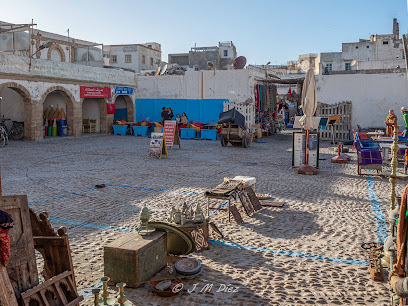
Ranch de Diabat
Discover thrilling horseback riding and ATV adventures at Ranch de Diabat, the ultimate outdoor experience in beautiful Diabat, Morocco.
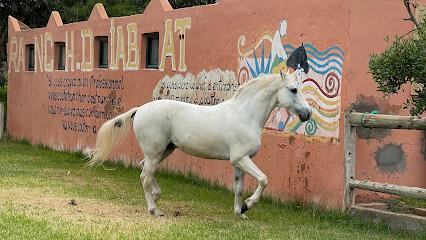
Explora Watersports: Kitesurf, Surfing and Wing foil Centre Essaouira Morocco
Discover the thrill of kitesurfing and surfing at Explora Watersports in Essaouira, Morocco – where adventure meets the stunning coastline.
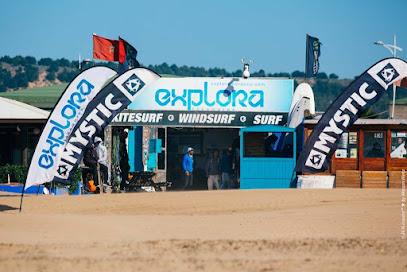
BleuKite Essaouira Morocco
Experience the thrill of surfing and the beauty of Essaouira at BleuKite, your ultimate surf destination on Morocco's stunning Atlantic coast.
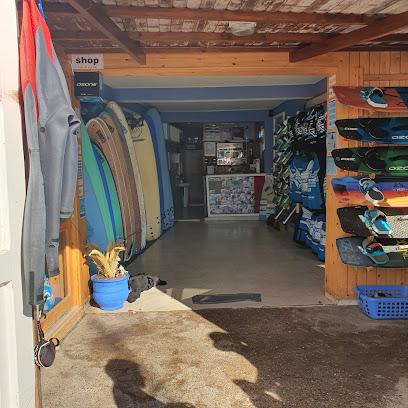
Be In Naturetours Essaouira
Discover the stunning landscapes of Essaouira with Be In Naturetours – your gateway to memorable hiking and sightseeing adventures in Morocco.
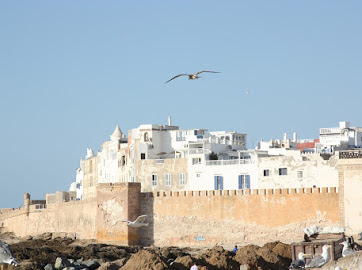
Sidi Kaouki Beach
Discover the serene beauty and vibrant surf culture of Sidi Kaouki Beach, the perfect retreat for relaxation and adventure on Morocco's stunning coastline.
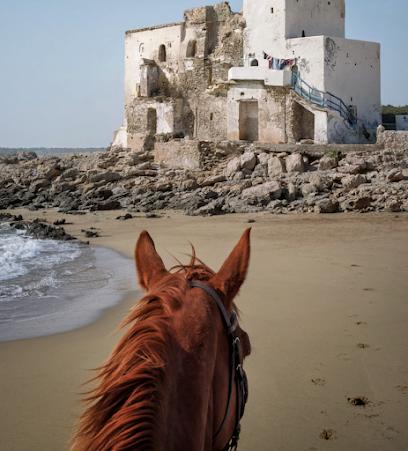
Afous argan
Discover the authentic journey of argan oil production at Afous Argan, an agricultural cooperative near Essaouira, Morocco.
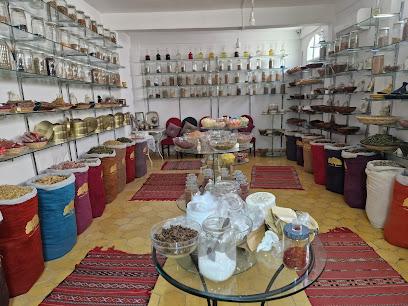
Zouina Cheval
Unleash your adventurous spirit at Zouina Cheval, the ultimate horseback riding destination in Diabat, Morocco, surrounded by stunning landscapes.
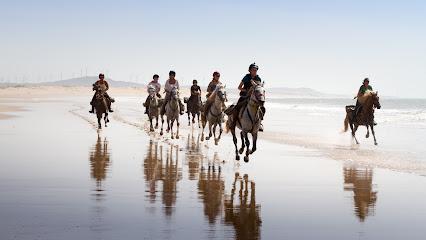
Gallery Kasbah
Explore the vibrant artistry of Essaouira at Gallery Kasbah, where local craftsmanship meets rich Moroccan culture.
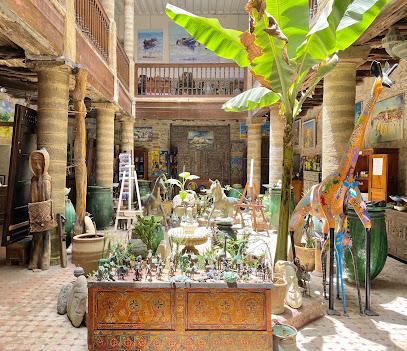
Dar Souiri
Explore Dar Souiri in Essaouira, a cultural center that captures the essence of Moroccan art, community, and heritage in a stunning historic setting.
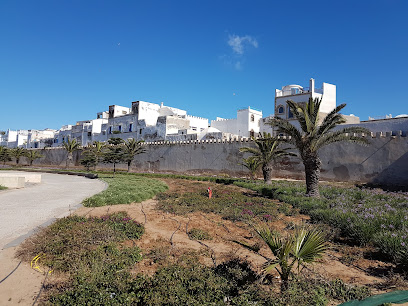
Essential places to dine
Taros
Experience exquisite Moroccan cuisine with stunning ocean views at Taros in Essaouira - A must-visit dining destination.
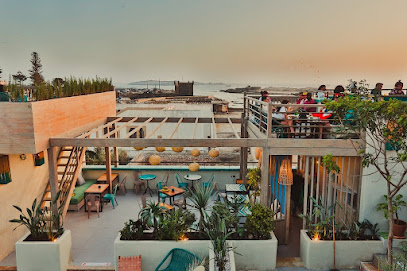
La Coupole Essaouira Beach
Discover La Coupole Essaouira Beach - where exquisite tapas meet stunning ocean views in Morocco's charming coastal town.
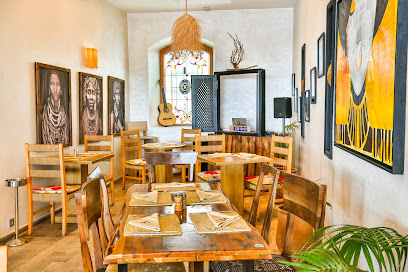
Restaurant la tolérance
Experience authentic Moroccan cuisine at Restaurant La Tolérance in Essaouira's Medina - where every meal tells a story.
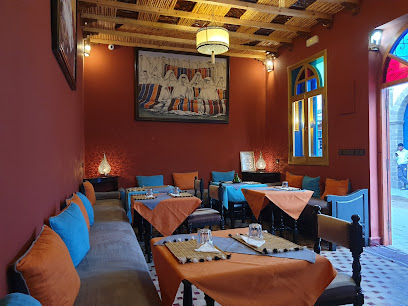
Ocean Vagabond
Experience the best of Mediterranean dining and thrilling surfing at Ocean Vagabond in Essaouira.
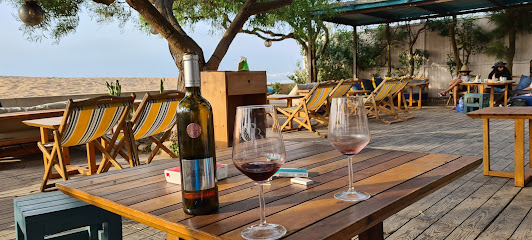
Triskala
Experience authentic Moroccan cuisine at Triskala – an organic and vegan-friendly restaurant in Essaouira's charming medina.
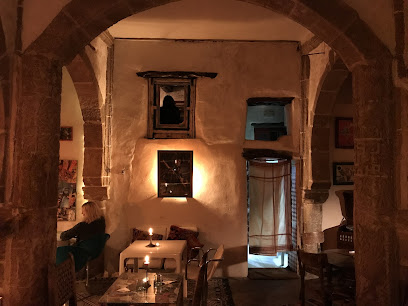
The Loft
Discover the flavors of Morocco at The Loft in Essaouira - where traditional cuisine meets modern flair in an inviting atmosphere.
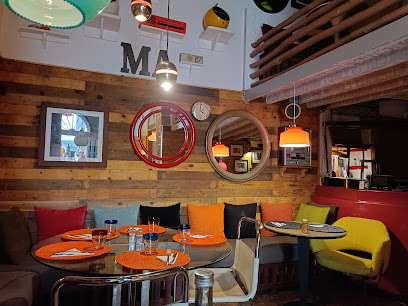
Dar Baba Restaurant & More
Experience authentic Moroccan cuisine at Dar Baba Restaurant in Essaouira – where flavors meet tradition in an inviting atmosphere.
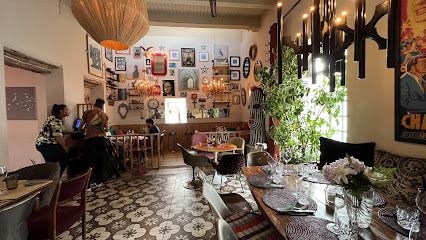
Restaurant Khmissa
Experience authentic Moroccan cuisine at Restaurant Khmissa in Essaouira - a hidden gem for food lovers seeking local flavors.
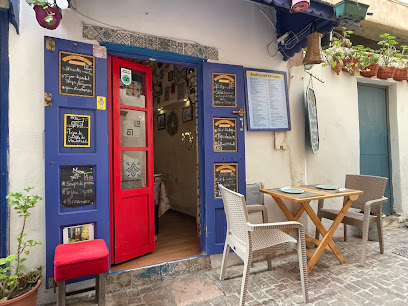
Restaurant Sayef
Experience authentic Moroccan cuisine at Restaurant Sayef in Essaouira's enchanting Medina - a culinary delight not to be missed.
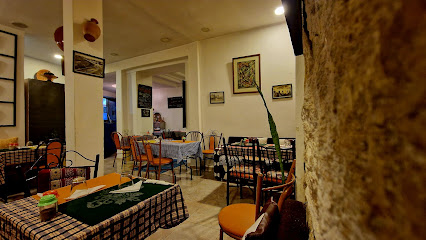
Restaurant la clé de voûte
Experience authentic Moroccan flavors at Restaurant la clé de voûte in Essaouira – where tradition meets culinary excellence.
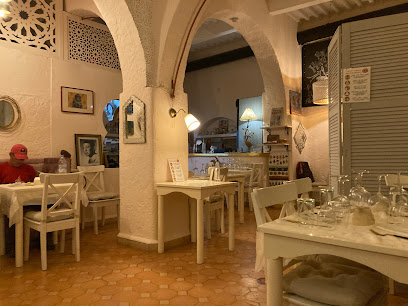
Restaurant Gusto Italia
Savor authentic Italian cuisine at Restaurant Gusto Italia in Essaouira - where every dish tells a story of flavor and tradition.
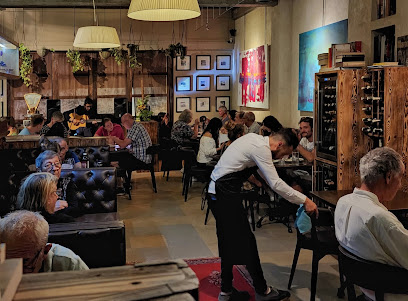
Caravane Café
Discover the vibrant flavors of Morocco at Caravane Café in Essaouira's enchanting Medina.
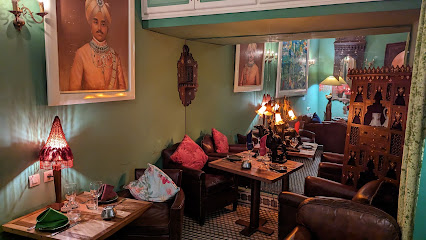
The Hungry Nomad Rooftop Essaouira
Experience authentic Moroccan cuisine at The Hungry Nomad Rooftop while enjoying breathtaking views of Essaouira's vibrant landscape.
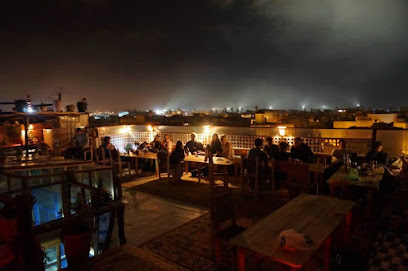
Cafe Restaurant Berber
Discover the essence of Moroccan cuisine at Cafe Restaurant Berber in Essaouira - where every dish tells a story.
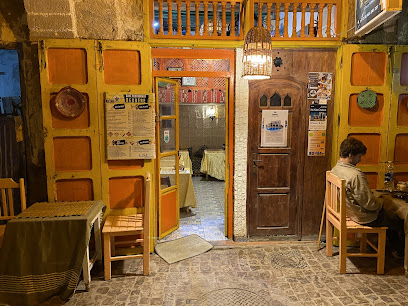
La Table by Madada
Experience authentic Moroccan cuisine at La Table by Madada in Essaouira's historic Medina - where every dish tells a story.
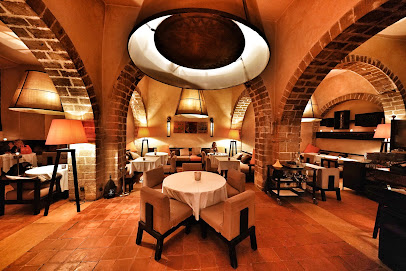
Markets, malls and hidden boutiques
Histoire de Filles
Explore Histoire de Filles in Essaouira, a boutique where Moroccan artistry meets modern fashion in a stunning Medina setting.
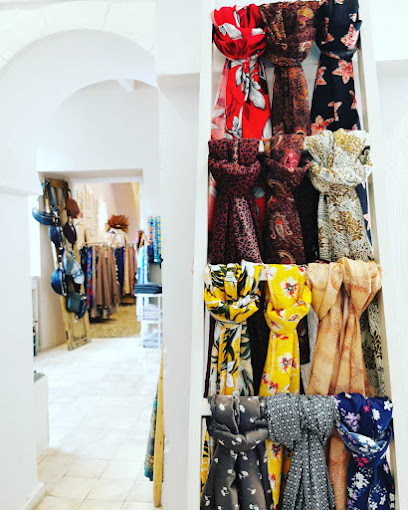
Basma Boutique
Discover unique Moroccan fashion and accessories at Basma Boutique, a stylish clothing store in the heart of Essaouira.
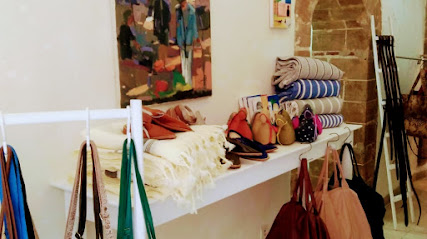
Up Above Interior
Explore Up Above Interior in Essaouira for unique, eco-friendly furniture that captures the essence of Moroccan craftsmanship and design.
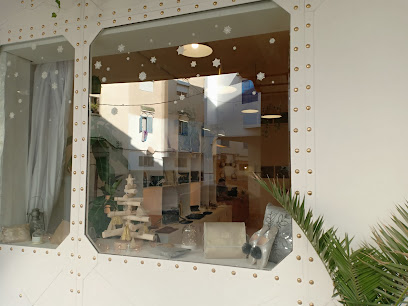
Koulchi Concept Store
Discover the charm of Koulchi Concept Store in Essaouira, where artisanal crafts meet a cozy coffee shop atmosphere.
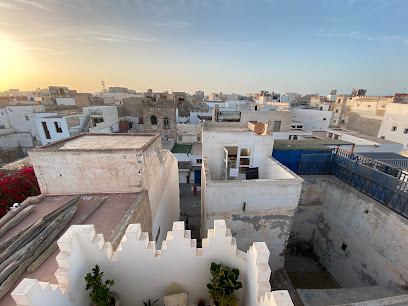
Hiya Art De Vivre
Discover the essence of Moroccan craftsmanship at Hiya Art De Vivre, where every item is a piece of art waiting to be cherished.
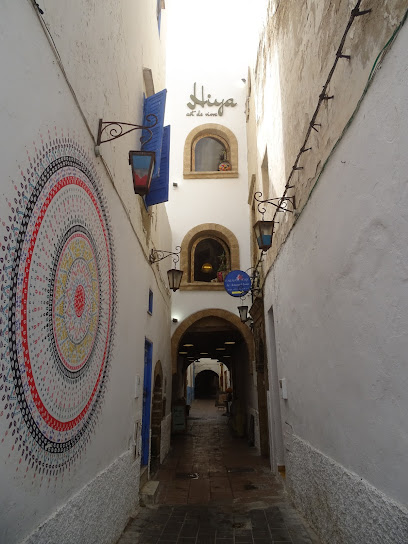
Chez Hakim
Discover the essence of Morocco at Chez Hakim, where unique souvenirs and local spices await in the heart of Essaouira's picturesque Medina.
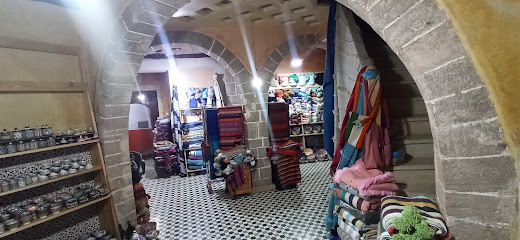
minimal
Discover unique Moroccan decor and furnishings at Minimal, a must-visit interior design store in Essaouira's historic Kasbah.
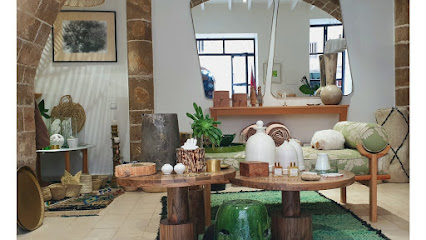
Bazar Ali Baba Essaouira
Explore Bazar Ali Baba in Essaouira for exquisite Moroccan woodwork and unique gifts, reflecting the rich culture of this coastal gem.
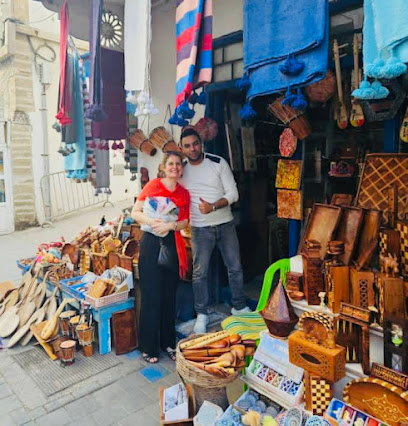
Ici Mogador
Explore Ici Mogador in Essaouira for unique Moroccan gifts, handmade treasures by local artisans, and a warm shopping experience.
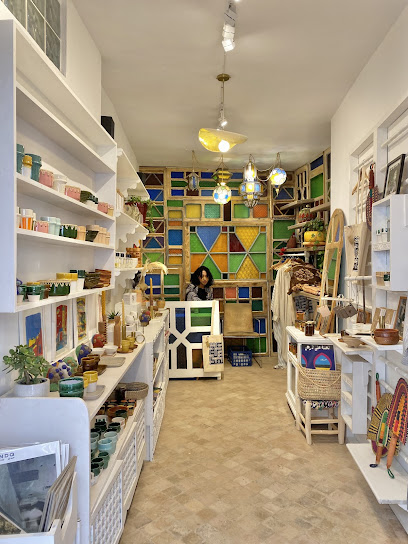
Bo Boutik Mogador
Discover the elegance of Moroccan fashion at Bo Boutik Mogador, a chic clothing store in the heart of Essaouira's Medina.
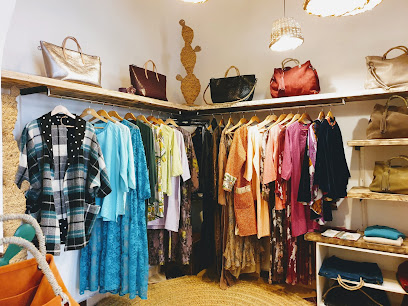
Exquisit Articles
Explore unique Moroccan craftsmanship at Exquisit Articles, a charming home goods store in the heart of Essaouira offering handmade treasures.
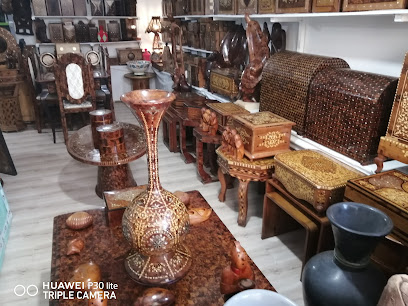
RACHID SHOP ESSAOUIRA
Discover unique Moroccan fashion at Rachid Shop in Essaouira, where tradition meets contemporary style for an exceptional shopping experience.
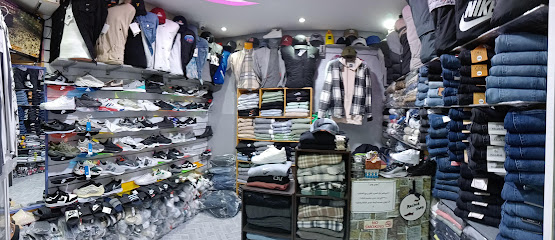
Boutique La Médina
Discover the charm of Boutique La Médina, a premier destination for custom-tailored clothing and unique fashion in the heart of Essaouira.
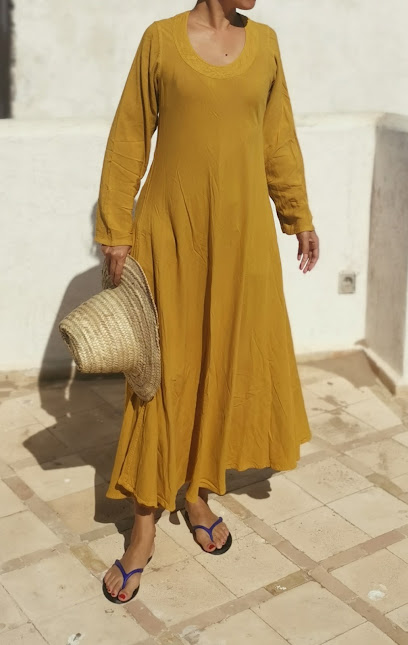
Momo Shope
Explore the artistry of Berber jewelry at Momo Shope, a must-visit destination in Essaouira for unique and handcrafted treasures.
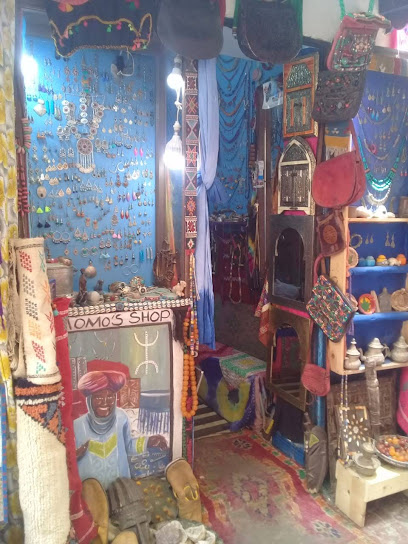
shop molay abdo
Discover authentic Moroccan clothing at Shop Molay Abdo in Essaouira's vibrant Medina, where tradition meets style.
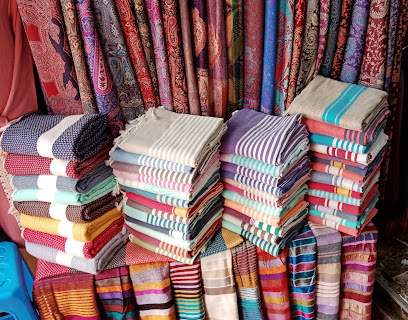
Essential bars & hidden hideouts
Taros
Discover the vibrant charm of Taros, a premier bar and restaurant in Essaouira, offering exquisite cuisine and breathtaking rooftop views.
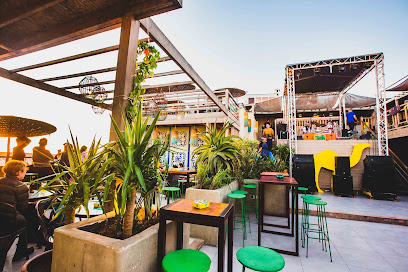
La Coupole Essaouira Beach
Experience the best of Moroccan cuisine at La Coupole Essaouira Beach, a vibrant tapas bar serving fresh seafood and local flavors with stunning ocean views.
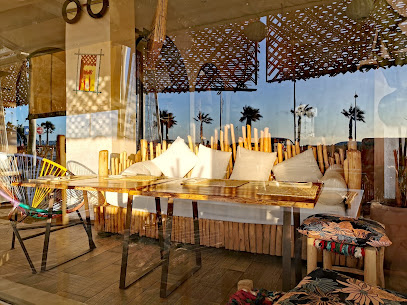
Ocean Vagabond
Experience the flavorful fusion of Mediterranean cuisine and surf culture at Ocean Vagabond, Essaouira's premier dining destination by the sea.
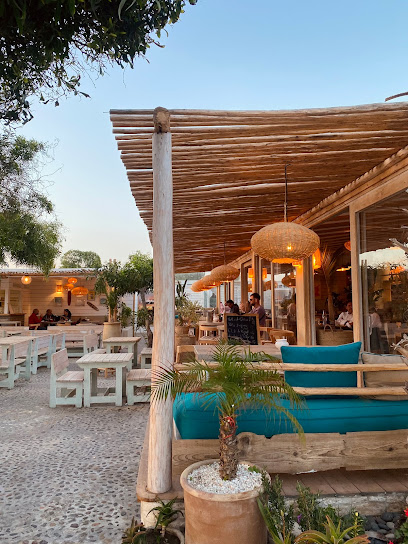
Le Love by Caravane
Experience the fusion of culinary delight and artistic expression at Le Love by Caravane in Essaouira's vibrant Medina.
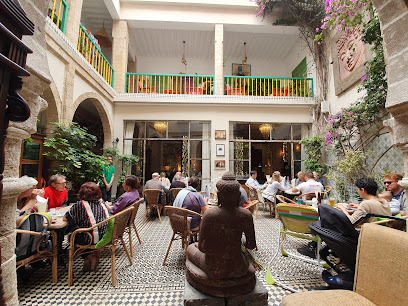
Restaurant D'Jazy
Experience the vibrant flavors and lively atmosphere at Restaurant D'Jazy in Essaouira, where Moroccan cuisine meets live music in a delightful setting.
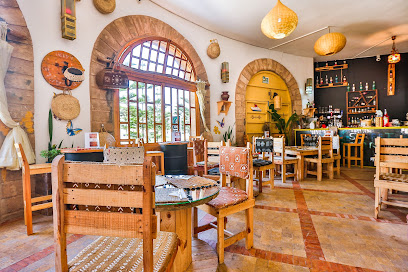
La Rencontre
Experience the vibrant flavors of Morocco at La Rencontre, a unique restaurant and makerspace in the heart of Essaouira.
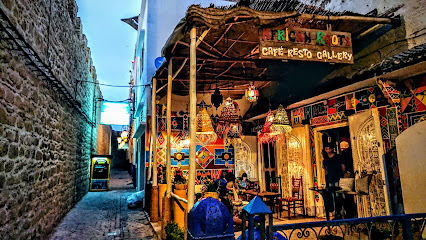
Alhafra
Experience the vibrant atmosphere of Alhafra, a must-visit bar in the heart of Essaouira's historic Medina, offering exceptional drinks and a warm welcome.
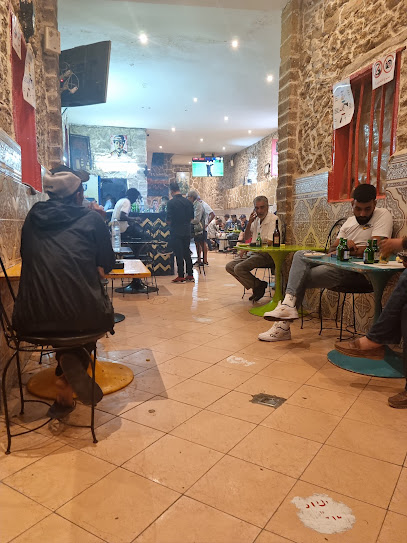
Unknown But Cheap
Experience the vibrant atmosphere of Unknown But Cheap, a charming bar in Essaouira's Medina offering affordable drinks and a taste of local culture.
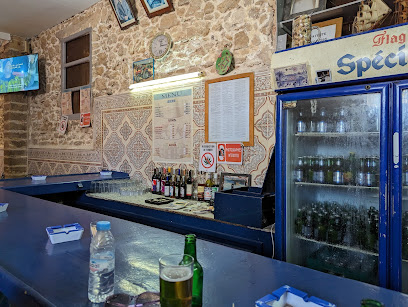
Le Relais
Experience the fusion of French cuisine and Moroccan charm at Le Relais, a vibrant restaurant in Essaouira with live music and delightful tapas.
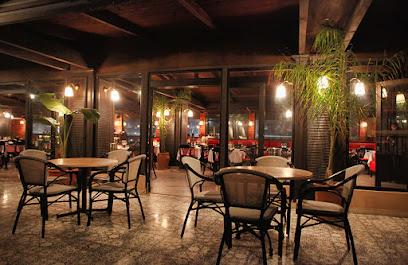
Café Pizzeria AFTASS
Discover the flavors of Essaouira at Café Pizzeria AFTASS, where grilled dishes and delicious pizzas await in a charming atmosphere.
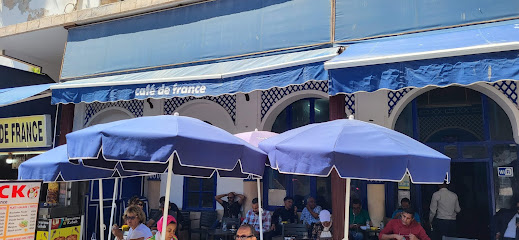
Le BAR Celone
Discover the vibrant culinary scene of Essaouira at Le BAR Celone, where local flavors meet international cuisine in a warm and inviting atmosphere.
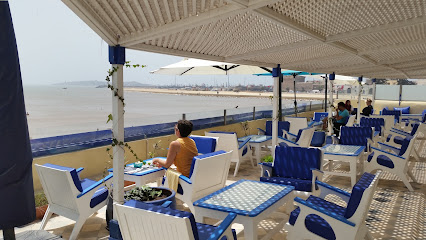
Alma
Discover the vibrant flavors of Essaouira at Alma, a must-visit tapas bar and restaurant offering a unique blend of Moroccan and Mediterranean cuisine.
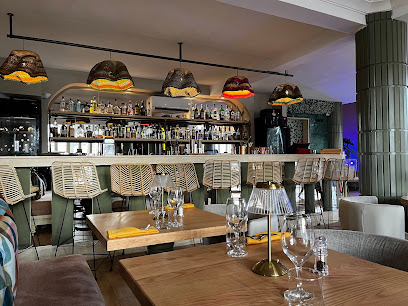
Bloody Mary
Experience the vibrant atmosphere and unique cocktails at Bloody Mary, Essaouira's iconic bar that captures the essence of Moroccan nightlife.
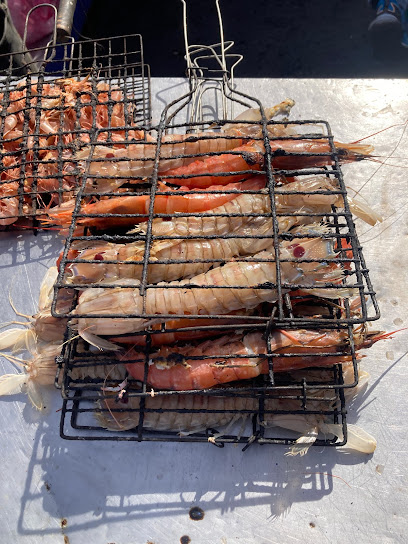
Bar Orson Welles
Experience a blend of classic cinema charm and local flavors at Essaouira's Bar Orson Welles, a must-visit for relaxed evenings.
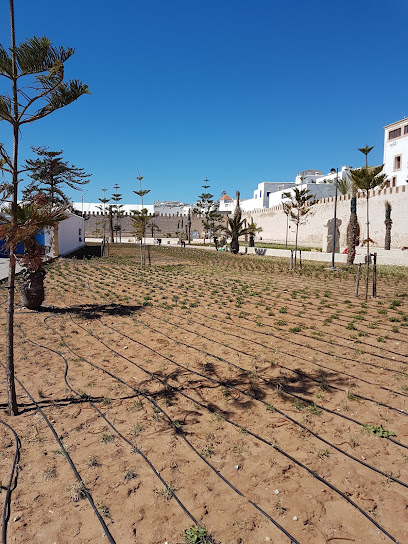
Le Touigine
Discover the hidden gem of Le Touigine, a bar in Essaouira's Medina, where local flavors and a cozy atmosphere await every traveler.

Travel experiences inspired by this city
Explore more travel diariesLocal Phrases
-
- Helloسلام
[salaam] - Goodbyeوداعا
[wada'an] - Yesنعم
[na'am] - Noلا
[laa] - Please/You're welcomeمن فضلك
[min fadlik] - Thank youشكرا
[shukran] - Excuse me/Sorryعذرا
[aadhara] - How are you?كيف حالك؟
[kayfa haluk?] - Fine. And you?بخير. وأنت؟
[bikhayr. wa'ant?] - Do you speak English?هل تتكلم الإنجليزية؟
[hal tatakallam al'inglizia?] - I don't understandلا أفهم
[laa afham]
- Helloسلام
-
- I'd like to see the menu, pleaseأريد أن أرى القائمة، من فضلك
[uridu an ara alqaimah, min fadlik] - I don't eat meatأنا لا آكل اللحم
[ana la aakul allahm] - Cheers!في صحتك!
[fi sahtik!] - I would like to pay, pleaseأريد أن أدفع، من فضلك
[uridu an adfa', min fadlik]
- I'd like to see the menu, pleaseأريد أن أرى القائمة، من فضلك
-
- Help!النجدة!
[annajdah!] - Go away!انصرف!
[ansarif!] - Call the Police!اتصل بالشرطة!
[atassal bialshurtah!] - Call a doctor!اتصل بطبيب!
[atassal bithibib!] - I'm lostلقد ضللت الطريق
[laqad dalalet altariq] - I'm illأنا مريض
[ana mareed]
- Help!النجدة!
-
- I'd like to buy...أريد أن أشتري...
[uridu an ashtari...] - I'm just lookingأنا فقط أتطلع
[ana faqat atatlau] - How much is it?كم هو ثمنه؟
[kam huwa thamanuh?] - That's too expensiveهذا غالي جدا
[hatha ghali jiddan] - Can you lower the price?هل يمكنك خفض السعر؟
[hal yumkinuka khafd als'ar?]
- I'd like to buy...أريد أن أشتري...
-
- What time is it?كم الساعة؟
[kam alsaa'ah?] - It's one o'clockالواحدة
[alwahidah] - Half past (10)العاشرة والنصف
[al'ashirah walinisf] - Morningالصباح
[assabah] - Afternoonالمساء
[almasa'] - Eveningالليل
[allayl] - Yesterdayأمس
[ams] - Todayاليوم
[alyawm] - Tomorrowغدا
[ghadan] - 1واحد
[wahid] - 2اثنان
[ithnan] - 3ثلاثة
[thalatha] - 4أربعة
[arba'a] - 5خمسة
[khamsa] - 6ستة
[sitta] - 7سبعة
[saba'a] - 8ثمانية
[thamania] - 9تسعة
[tasia] - 10عشرة
[ashara]
- What time is it?كم الساعة؟
-
- Where's a/the...?أين...؟
[ayn...?] - What's the address?ما هو العنوان؟
[ma huwa al'anaan?] - Can you show me (on the map)?هل يمكنك أن تريني (على الخريطة)؟
[hal yumkinuka an tureeni (ala alkhareetah)?] - When's the next (bus)?متى يأتي الحافلة القادمة؟
[mata ya'ti alhafilah alqadimah?] - A ticket (to ....)تذكرة (إلى ...)
[tadhkirah (ila ...)]
- Where's a/the...?أين...؟
History of Essaouira
-
The earliest known settlers of Essaouira were the Phoenicians and Carthaginians, who established trading posts along the coast of present-day Morocco around the 5th century BCE. The strategic location of Essaouira made it an ideal stopover for their maritime trade routes, linking the Mediterranean with sub-Saharan Africa.
-
By the 1st century CE, the Romans had established a presence in Essaouira, which they called 'Tamuziga.' The Romans were attracted by the rich resources, particularly the purple dye extracted from the Murex sea snail, which was highly prized across the Roman Empire.
-
During the medieval period, the Berber tribes took control of Essaouira. The region became part of the Berber kingdom of the Sanhaja and later the Almoravid dynasty. The Berbers utilized Essaouira as a vital port for exporting goods such as grains, ivory, and gold.
-
In 1506, the Portuguese occupied Essaouira and established a fort called 'Castelo Real de Mogador.' This marked the beginning of European interest in the region. However, the Portuguese faced continuous resistance from the local Berber tribes and eventually abandoned the fort in 1510.
-
The modern city of Essaouira was founded in 1764 by Sultan Sidi Mohammed ben Abdallah. He commissioned the French engineer Théodore Cornut to design the city, aiming to create a thriving port to facilitate trade with Europe. The city was then known as 'Mogador,' and its layout included wide streets, public squares, and fortifications.
-
In the 18th and 19th centuries, Essaouira became a melting pot of cultures, including a significant Jewish population. The Jewish quarter, known as the Mellah, was established, and Jews played a crucial role in the city's commerce, particularly in the trade of textiles and spices.
-
In 1912, Morocco became a French Protectorate, and Essaouira came under French administrative control. The city experienced modernization efforts, including infrastructure development and the introduction of new architectural styles. However, the traditional Moroccan culture remained largely intact.
-
Morocco gained independence from France in 1956, and Essaouira began to experience a resurgence in cultural significance. The city became a hub for artists, musicians, and writers. The annual Gnaoua World Music Festival, established in 1998, attracts international attention and celebrates the rich musical heritage of the region.
-
In 2001, Essaouira's Medina was designated a UNESCO World Heritage Site. The recognition highlighted the city's historical and cultural importance, preserving its unique architecture and urban planning. The UNESCO status has helped boost tourism, bringing global attention to Essaouira's rich heritage.
Essaouira Essentials
-
Essaouira is accessible via several modes of transport. The nearest international airport is Essaouira-Mogador Airport, situated about 16 kilometers southeast of the city. Seasonal flights operate from various European cities, and domestic flights are available from Casablanca. Alternatively, you can fly into Marrakech Menara Airport or Agadir Al Massira Airport and take a bus or taxi to Essaouira. The bus journey from Marrakech or Agadir takes approximately 3 hours, with services provided by companies such as Supratours and CTM.
-
Getting around Essaouira is relatively easy. The city is compact and walkable, making it ideal for exploring on foot. For longer distances, grand taxis are available and can be shared or hired privately. Petit taxis are also a convenient option for shorter trips within the city. Additionally, bicycles can be rented for a more leisurely exploration of the area. Public buses connect Essaouira to nearby towns and cities, although schedules can be irregular.
-
The official currency in Morocco is the Moroccan Dirham (MAD). Credit and debit cards are widely accepted in hotels, larger restaurants, and shops. However, it is advisable to carry cash for smaller establishments and local markets. ATMs are readily available throughout Essaouira, and currency exchange services can be found in banks and exchange offices. Tipping is customary in Morocco, typically around 10% in restaurants.
-
Essaouira is generally safe for tourists, with low crime rates. However, standard precautions should be taken. Avoid isolated areas at night and be cautious of pickpockets in crowded places such as markets and bus stations. The Medina is safe to explore, but it is always wise to stay alert. There are no specific high-crime areas targeting tourists, but it is important to be aware of your surroundings and keep your belongings secure.
-
In case of emergency, dial 19 for police assistance, 15 for medical emergencies, and 15 for fire services. Essaouira has a hospital (Hôpital Sidi Mohammed Ben Abdellah) located near the city center, as well as several pharmacies that can provide over-the-counter medications. It is recommended to have travel insurance that covers medical emergencies. For minor issues, many locals speak some English or French, which can be helpful in communicating your needs.
-
Fashion: Do dress modestly, especially when visiting religious sites. Avoid wearing revealing clothing. Religion: Do respect local customs and traditions. Be mindful of prayer times and avoid interrupting. Public Transport: Do be respectful and patient when using public transport. Don’t eat or drink on public transport. Greetings: Do greet people with a friendly 'Salam Alaykum' (Peace be upon you). Handshakes are common, but wait for the other person to initiate. Eating & Drinking: Do try local delicacies and accept food and drink offerings graciously. Don’t refuse hospitality, as it is considered impolite.
-
To experience Essaouira like a local, visit the bustling Medina and its vibrant souks, where you can find handmade crafts, spices, and local produce. Take a stroll along the picturesque Skala de la Ville, a historic fortress with stunning views of the Atlantic Ocean. Enjoy fresh seafood at the port, where you can select your meal directly from fishermen. For a unique experience, visit during the Gnaoua World Music Festival, held annually in June, which showcases a blend of traditional Moroccan and international music.
Trending Landmark in Essaouira
Nearby Cities to Essaouira
-
Things To Do in Agadir
-
Things To Do in Taroudant
-
Things To Do in Marrakech
-
Things To Do in Casablanca
-
Things To Do in Meknes
-
Things To Do in Fes
-
Things To Do in Asilah
-
Things To Do in Chefchaouen
-
Things To Do in Tangier
-
Things To Do in Tetouan
-
Things To Do in Faro
-
Things To Do in Cádiz
-
Things To Do in Europa Point
-
Things To Do in Gorham's Cave Complex
-
Things To Do in St. Michael's Cave

























